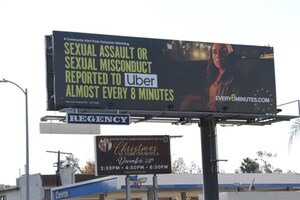
LOS ANGELES, Nov. 11, 2025 /PRNewswire/ -- The latest episode of Smoke & Mirrors, the investigative podcast from Consumer Watchdog, reveals how hidden algorithms and artificial intelligence used by the nation's largest home insurance companies are leaving many homeowners underinsured, underpaid, or denied home insurance completely.
Listen to episode 3 today on your podcast platform of choice, including:
In episode 3: How Tech and Data Shape Your Property Insurance, host Justin Kloczko looks at how home insurers increasingly rely on one tech company—Verisk—to quietly control every step of the home insurance process, from setting coverage limits, to determining how much it costs to rebuild after a disaster, to determining how at risk a property is to wildfires. Verisk sells all three of these products: 360Value, Xactimate, and FireLine, but they all lack transparency, said the California-based nonprofit.
Through powerful personal stories and expert insight from fire survivors, professors, actuaries, attorneys, and legislators, the episode exposes the unseen data machinery that determines who gets paid fairly and who doesn't.
"Using Verisk's black box programs, insurance companies are underinsuring, lowballing claims payouts, raising prices and denying people coverage completely," said Kloczko. "It's part of the reason why we have a growing underinsurance crisis and skyrocketing premiums."
This episode highlights:
- Barbara Holub, a Colorado resident, who lost her home in the 2021 Marshall Fire only to learn the Verisk program her agent used to value her home, 360Value, left her underinsured by $1 million.
- Pacific Palisades resident Bill May has so far paid $500,000 out of pocket to rebuild his home after the 2025 Los Angeles fire. The calculation to rebuild his home by the Verisk program Xactimate was also $1 million short of the quotes he received to rebuild.
- How the dataset used by 360Value to determine how much a home should be insured for was often incomplete or outdated, often never verified and even manipulated by agents in order to lower a home's grade, according to court records. But insurance companies still used it to establish policies for people.
- How allowing Verisk to keep the data behind its catastrophic risk model secret means actuaries cannot verify whether a proposed $85 million Mercury homeowners insurance rate hike is excessive or unfairly discriminatory.
- How Verisk began as an insurance industry nonprofit dating back to the 1970s and morphed into a powerful data company thanks to corporate consultants such as McKinsey.
- How about 75 percent of those who lost their homes following the Marshall Fire were underinsured, according to a study by the University of Colorado at Boulder and the University of Wisconsin-Madison.
- Why policyholders aren't getting the payments they are owed. According to a professor at the University of Wisconsin-Madison who studies insurance, many homeowners ended up underinsured not because of their income, location, or home age, but which insurance company they used, because some insurers routinely write lower coverage.
- How people generally rely on the replacement-cost numbers the insurer provides, and those starting policy limits are often set too low.
"I didn't sign a contract for Xactimate, I didn't sign a contract for getting paid out too little," said May, the Pacific Palisades fire survivor. "I signed a contract for reasonable and necessary expenses to rebuild. Even if they're more."
"They want to have this closed system, this proprietary business of trying to magically figure out what the house was worth," said May.
Smoke & Mirrors uncovers a web of little-known subcontractors and unseen technology that facilitate claims delays, lowballed payouts and denials, and offers advice on what consumers can do about it.
Learn more about the series at ConsumerWatchdog.org.
SOURCE Consumer Watchdog








Share this article